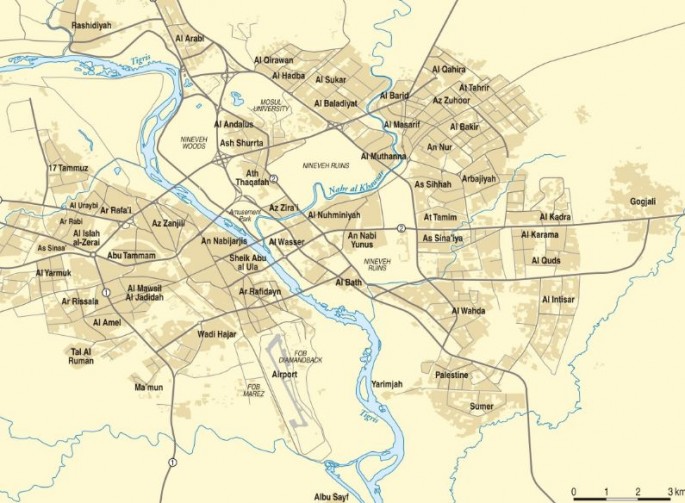The Iraqi Army and its allied forces have captured half of the ISIS-held city of Mosul after three months of bitter and bloody fighting.
The Iraqi government troops on Jan. 18 said its troops were in "full control" of eastern Mosul after expelling ISIS militants from that part of the only city on Iraqi soil held by the Islamic terrorist group. The Iraqi Army, Kurdish Peshmerga and allied militia groups with support from United States and coalition aircraft began the campaign to liberate Mosul on Oct. 17, 2016.
At the time, one Kurdish Peshmerga commander predicted it would take up to six months of hard fighting to seize full control of Mosul from ISIS. The pace of the fighting seems to confirm his assessment.
What remains of the original 5,000 man ISIS force that defended Mosul in October 2016 have retreated into western Mosul. And if Iraq's estimate of ISIS casualties are anywhere near accurate, it means only some 2,000 battered and shell shocked ISIS fighters remain alive to contest western Mosul.
The seizure of eastern Mosul was a "big victory," said Lt. Gen. Talib Shaghati of the Iraqi Army who commands the counter-terrorism forces, the elite of the Iraqi Army that is spearheading the Mosul attack.
Gen. Shaghati described Iraq's victory as "unprecedented."
He said plans were now being made to retake the western part of Mosul but gave no further details. The fight for western Mosul, however, isn't expected to be a walkover despite heavy ISIS losses.
Western Mosul is home to some of Mosul's oldest neighborhoods, and its narrow streets packed with buildings will be to the advantage of ISIS. As in eastern Mosul, however, U.S. airpower is a trump card that will make life easier for the Iraqi Army and its allies.
The Iraqi Army, however, admitted pockets of ISIS resistance linger in eastern Mosul.
Up until the first week of December 2016, the United Nations estimated Iraqi Army combat deaths alone at close to 2,000 men since the offensive was launched. The UN gave no estimates of combat deaths among coalition allies such as the Kurdish Peshmerga. It also gave no figure for deaths among Iraqi paramilitary units or Sunni fighters.
Combat death among Iraqi Army allies will push total coalition deaths to above those suffered by ISIS, or ISIL, as the Americans are wont to call them.
While ISIS deaths are difficult to estimate with any certainty, the Iraq Army that has led the assault into Mosul estimates killing over 2,000 ISIS fighters. Not included in this toll are fighters killed by U.S. and coalition airstrikes that pummel ISIS almost every day.



























